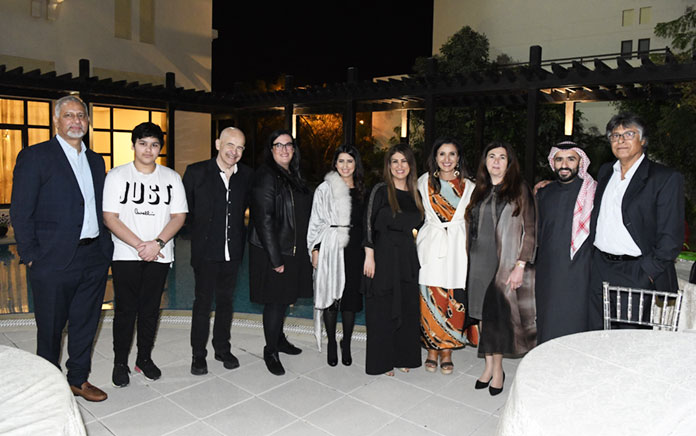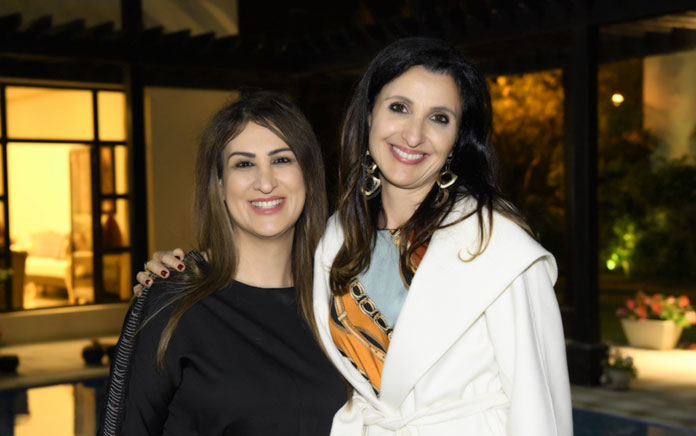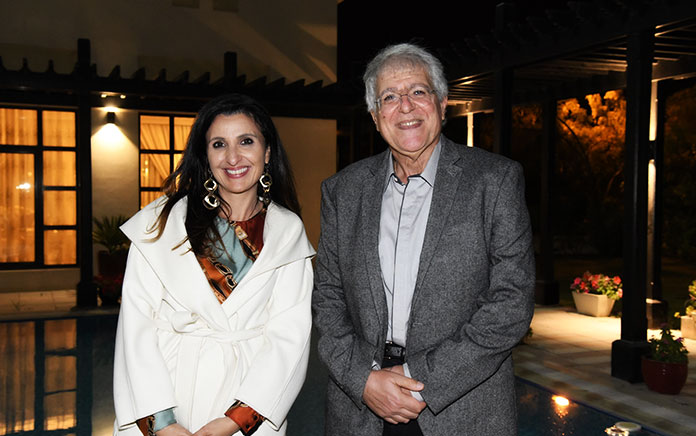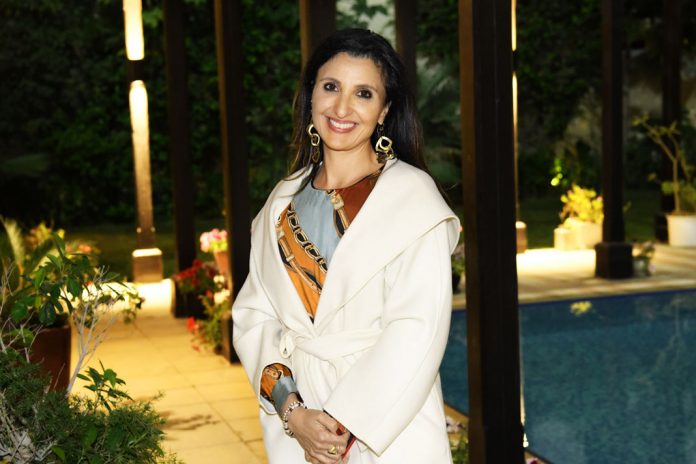During her recent visit to Bahrain, British Gibraltar-born Fleur Hassan-Nahoum, Jerusalem’s Deputy Mayor for Foreign Relations, Economic Development and Tourism, spoke with George Middleton about building commercial relations and her passionate battles for equality and plurality in her adopted homeland.
Following the announcement of the Abraham Accords, which introduced an era of peaceful collaboration between Israel and several Arab nations, Ms. Hassan-Nahoum, who is one of Jerusalem’s six deputy mayors and tipped for high office, visited the Kingdom for a series of discussions on trade and tourism.
COMMERCIAL EXCHANGE
She explains: “In principle, I want to encourage tourism. I am also the founder of the UAE-Israel Business Council which laid the infrastructure for the two countries to do business together. People here have an interest in doing business with Israel, but the question is how?
“We have done it successfully in the UAE – with an online platform that already has thousands of members. We know what people are interested in because that’s what we ask when they join. I think we can do something similar here, which is what I’m hoping to explore.

“I don’t think we’re talking about investment as much as we’re talking about joint ventures and the purchasing of technology. I tell the Israelis all the time, ‘nobody is waiting for you with open cheques here, but if you have a technology that’s going to make an existing Bahraini company more efficient, then they’ll buy that from you’. And I think that’s what we’re looking at. Again, the collaboration of tourism and culture, academic collaboration, research collaboration, putting all that in terms of business, I see much more the exchange of know-how technologies. In Bahrain, people build and plan well, while in Israel, we have good technology solving mutual challenges; agritech, water tech, that type of thing.”
LONG-TERM PEACE
In terms of how this could affect the future of Israeli-Palestinian relations, she adds: “I believe these accords might encourage the Israelis and Palestinians to sit down and talk together after a long period of intransigence. I believe in self-determination for the Palestinian people whether that is in the form of a two-state solution or not depends on the final negotiated settlement.”
“Most people want prosperity, good lives and opportunities for their children; that’s certainly what my Arab friends in Israel want for themselves, as well as some sort of self-determination of government. Everyone deserves that. Let’s see.
“I want the best arrangement possible for the Palestinian people. Self-determination is a wide word which can be interpreted many ways. The point is, they should be able to govern themselves. Whether that should be as part of two states or one state , subject to negotiation, depends on the outcome.”
EQUAL OPPORTUNITIES
Having studied law and practiced as a barrister in London, Ms. Hassan-Nahoum had been living in Israel for several years before she became involved in politics, running for the Jerusalem City Council in a bid to address issues of inequality and opportunity across religious and ethnic divides.
During the 2018 municipal elections, her candidacy drew some opposition and the local Jerusalem branch of Likud [the major centre-right political party in Israel] called on Prime Minister Netanyahu to retract his support of Zeev Elkin for Mayor when she was included on his electoral list!
She says: “I actually think local politics is a much purer form of politics as you’re really dealing with people’s day-to-day education, their transport, small businesses, their health. It’s the things that really affect people and that’s why I ended up running for city council. That’s how I started.
“Also, the Arabs in my city are all residents of the city and they’re under my municipality as well. I have a big motivation today to develop East Jerusalem and bring prosperity and better job opportunities and close social gaps, which there are. There’s a good population of Jewish people who are very marginalised economically, the ultra-orthodox, and then we have the Arabs who are also marginalised economically. I want to close those gaps.
“A big part of my family development work is in East Jerusalem and creating more opportunities and quality employment for the Arabs.”
“I’ve always believed in giving a voice to the people who have difficulty finding their own. In Jerusalem, it’s the marginalised populations who need support the most. I’m a big believer in equal opportunity, give children equal playing fields; that’s Arab children, ultra-orthodox children, Ethiopian children. These are the children who have less opportunity than, maybe, the other children. And so, I want everybody to have the same opportunities that I can give my children.”

LEVEL PLAYING FIELD
As well as championing minorities Ms. Hassan-Nahoum is an outspoken advocate for women saying that despite equal rights being enshrined in Israeli law, equality of opportunity and representation still have some way to go. She is particularly keen on the promotion of good role models for women and girls allowing them to visualise their future in top-flight roles both in politics and elsewhere in society.
“I think, in general, we have equal rights, but sometimes we don’t have equal opportunities and the opportunities don’t just come from the fact that a woman can run for office whenever she wants,” she says. “Opportunities also come from role modelling [so] women see that women can be leaders. I’m big into the idea that little girls should see females in key political positions.”
Having seen no images of female societal leaders alongside the men on the walls in her daughter’s school, she launched a successful social media campaign which resulted in more than 250 schools agreeing to show images of Israel’s female chief justice and the female governor of the Bank of Israel.
And she adds, with feeling: “I do believe that we’d have much more peace if women were the leaders. Absolutely, a hundred percent, I believe that that’s it.”

THE FUTURE
Looking to the future in terms of international relations, the deputy mayor believes both the region and the new US administration have joint interests in seeing the fledgling relationships develop, despite their close association with the previous president.
She says: “I think Biden is a man of peace. I know that he came out with a supportive statement when the normalisation was signed. So, I don’t see why he wouldn’t support this. I also think that this has got its own momentum now, nobody’s going to stop this since it’s kind of picked up its own speed. It’s exciting. People are talking about lots of business prospects, prospects of mutual economic prosperity, tourism… So, I think it’s got its own legs now.
“The worrying thing is really what’s going to happen with Iran, whether he is going to go back to the JCPOA (the Iran nuclear deal) and whether Biden’s going to believe that the Iranians are negotiating in good faith. That’s really the question here. I think that’s what’s pushed us all together. Let’s be honest. I think the Middle East is realigning itself into the people wanting peace and the people who want a belligerent policy. That’s really where it’s at. And I truly believe in peace through economic development. I believe that with the Palestinians and the Arabs as well, in Israel, I really do. I truly believe when you give people better prospects, a better life, they’re much more likely to sit with you and talk peace in a different way.”
I do believe that we’d have much more peace if women were the leaders. Absolutely, a hundred percent, I believe that that’s it.”
Citing Israel’s recent decision, following a letter from the UAE, to allow Palestinian farmers back onto land they have not accessed for many years, the deputy mayor, once again, makes an impassioned plea for direct negotiations saying: “Well look, as we know, the UAE wrote a letter asking Israel not to annex certain parts of the Jordan Valley. Then the agreements assigning the understanding were frozen. So, it’s already had an effect if you want to look at it that way.
“Ultimately, I don’t think there’s any other way than Israel sitting and talking with the Palestinians to deal with any of these issues. The road to peace is not through Manama or Abu Dhabi; it has to be direct. It has to be sitting together because we can only have an agreement with the Palestinians. We need to have a friendly peace rather than a cold peace because the two countries are too integrated.”
PLURALISM
She adds that the process has special resonance in her own city, concluding, “What motivates me [is a] pluralistic Jerusalem, because I believe that everybody belongs to Jerusalem. When King David built Jerusalem two and a half thousand years ago, he built it because it wasn’t a home to any one of the tribes. All tribes could gather. So, I believe that the DNA of Jerusalem shows that we are the most diverse city in the country, and I believe that the DNA of Jerusalem has to remain diverse. And for that, I have to fight the forces of those trying to make Jerusalem, all religious. So pluralistic means there’s a place for everybody. Sometimes there is tacit pressure from the ultra-orthodox to make Jerusalem a little bit more ultra-orthodox and I’m one of those people that, as a feminist and as a woman, is holding back on that.”


































